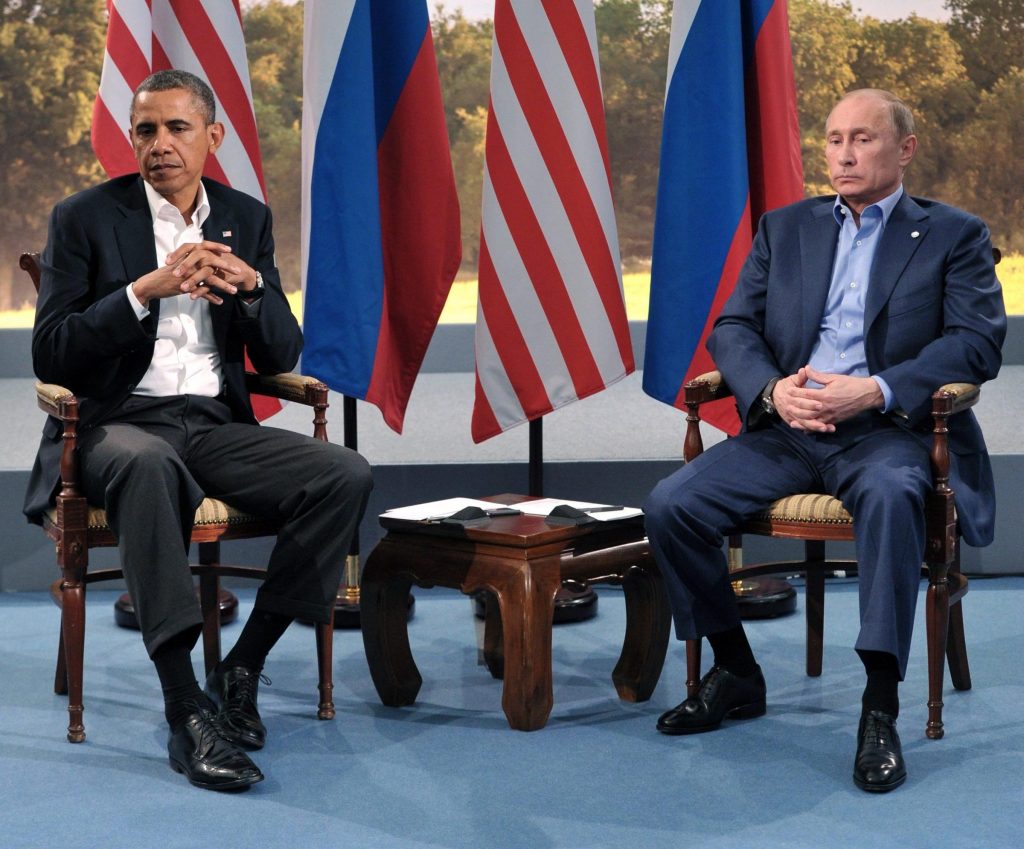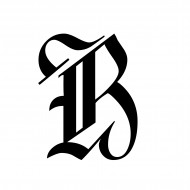
Quotes
“The KGB’s ranks has swollen under Yuri Andropov, who served as its chairman from 1967 to 1982, when he became the paramount leader of the Soviet Union. Andropov became on of Putin’s heroes, a distant and yet revered leader. Andropov understood the limits of the Soviet system and sought to modernize it so it could catch up to the West, especially in economic affairs. The KGB sought out recruits who understood macroeconomics, trade and international relations. Vladimir seems to have anticipated this with his studies at Leningrad State University, where he wrote a thesis on the principle of most-favored-nation status in international trade.”
Putin’s educational choices all appear deliberately strategic: law, international trade, foreign intelligence, natural resource management. Education is an element of his rise that can not be solely attributed to luck.
“Thus while Andropov might have wanted to modernize the Soviet system, he ruthlessly punished dissent against it. It was he who created the notorious Fifth Chief Directorate [of the KGB] to combat ideological opposition, which led to the persecution of the physicist Andrei Sakharov and the author Aleksandr Solzhenitsyn. It was he who, in 1969, created a network of psychiatric hospitals to persecute dissidents by classifying opposition to the state as evidence of mental illness.”
Seems straight out of “1984.”
“Ninety percent of the KGB’s intelligence, he [Putin] once claimed, derived from ordinary Soviet citizens willingly or otherwise informing on others, their coworkers, their friends, their relatives. ‘You cannot do anything without secret agents,’ he said.”
How common are informers and covert agents today?
“Little Volodya [Putin], Usoltsev thought, had a remarkable ability to adapt his personality to the situation and to his superiors, charming them and winning their confidence; it was defining trait that others would notice.”
Charisma and adaptability from the start despite appearing “bland” or “normal” in his early political life.
“What intrigued Usoltsev most of all was his colleague’s [Putin’s] professed belief in God. In the KGB, it “an inconceivable thing,” and Usoltsev, truly a godless Communist, marveled at his willingness to acknowledge any faith whatsoever, though the young major [Putin] was careful never to flaunt it. He was so discreet, in fact, that Usolsev was never completely sure that he was not using God as just another intelligence tactic.”
Putin’s religiosity is likely genuine. He took career risk and exhibited non-conformity to display it. To think his own coworkers thought it might be a tactic really highlights how the Soviet culture of distrust and deception tainted interpersonal relationships. Perhaps this extreme degree might be specific to the intelligence community.
[Context: 912 people were held hostage in a Moscow theater by Islamic Chechen terrorists in 2002. Putin ordered a special forces assault to take out the terrorists who wired the theater with explosives.] “An odorless gas began to seep into the main hall, released through building’s ventilation system. It was an aerosolized derivative of a powerful anesthetic, fentanyl, developed by an FSB laboratory. […] The gas put most of the hostages to sleep, while commandos fought gun battles with terrorists who were not in the main hall or were otherwise unaffected by the gas. […] All forty-one captors died, most from bullets to the head. […] The rescue seemed to be an unmitigated victory – except the men who planned and carried out the raid had not given thought to the effect the gas would on the weakened hostages. […] In the end, 130 hostages died during the siege, only five of them died from gunshot wounds. […] A doctor who participated in the rescue described the confusion and chaos. ‘It wasn’t an evil plot,’ he said. ‘It was just a Soviet mess.'”
The audacity of this operation boggles the mind – knocking out your own people with fentanyl gas. 130+ deaths is pretty gruesome, but at least it wasn’t 900. How would America have responded if this theater had been in New York?
[Context: Two dozen Russian oligarchs met with Putin to discuss “the intersection of business and government, that shadowy nexus where corruption flourished”] “Khodorkovsky did not know Putin well-they met only after the latter had become prime minister-and he had some doubts about him as Yeltsin’s replacement. Still he wanted to help Putin strengthen the legal foundations for modern capitalism. He believed in Putin’s democratic instincts, though his first impression of Putin was of ‘an ordinary, normal person’ whose upbringing in the courtyard of Leningrad and in the KGB left an indelible impression on him: he believed no one except “his own,” meaning his people. By the time of the meeting in 2003, Khodorkovsky had become Russia’s richest man and Putin had become its most powerful. A clash was probably inevitable, but that that winter day, no one saw it coming.
Beneath the dome of Catherine Hall, infused with the wan light of winter, Khodorkovsky delivered a speech on behalf of the industrialists union, which another tycoon, Mikhail Fridman, was supposed to give, but refused. He read from a PowerPoint presentation with a searing title, ‘Corruption in Russia: A Brake on Economic Growth.’ […]
‘It was clear to me that we had signed our own death warrants,’ Aleksei Kondaurov, one of Yukos Oil’s executives said afterward.”
Well played, Mikhail Fridman. Khodorkovsky eventually had his business (Yukos Oil) seized and spent about 10 years in prison.
“What [Khodorkovsky] had done was expose a strategy of Putin’s whose roots reached back the Petersburg more than a decade before, when Putin forged his bonds with the cadre of aides and businessmen concentrated around the Mining Institute where he had defended his [mostly plagiarized PhD] thesis. By the middle of the 1990s, Putin was meeting regularly for informal discussions on the country’s natural resources under the aegis of the institute’s director, Vladimir Litvinenko, who had presided over Putin’s dissertation. The ideas that Putin and his friends, Igor Sechin and Viktor Zubkov, formulated in their discussions and academic work became the basis for a strategy of restoring the state’s command over Russia’s vast oil and gas resources. Litvinenko, a respected geologist, advocated greater state control as a means not to revive its beleaguered economy but to restore Russia’s status as superpower. ‘They’re the main instrument in our hands – particularly Putin’s – and our strongest argument in geopolitics,’ he declared.” […]
“Putin’s strategy for extending the states control over natural resources had been judicious and incremental, carefully maintaining a balance between the liberals and the hardliners in his own inner circle.”
The academic origins of Russia’s central geopolitical strategy. Putin was and is uniquely positioned and sufficiently tactful to implement the ideas from his education in trade and natural resource management.
“After the British authorities determined what poison had killed Litvinenko, polonium-210, they ultimately found residual traces of it everywhere the three men had been […] Polonium-210 occurs naturally in minute quantities in the earth’s crust, in the air, and in tobacco smoke, but when manufactured it appears as silvery soft metal. It was once used in the triggers of nuclear weapons and is produced in small amounts to eliminate static electricity in industrial machinery and to remove dust from film and camera lenses. It decays by emitting alpha particles that travel only a few inches and are easily stopped by a sheet of paper or a person’s skin. They only health risk comes when it is ingested. Easily and safely handled and lethally toxic, it is an ingenious weapon. Ninety-seven percent of the world’s industrial supply comes from Avangard, a Russian nuclear facility in the heavily guarded city of Sarov, where the Soviet Union built its first atom bomb.”
Such an extravagant and quintessentially Russian assassination.
“The [makeup and] bruises were undeniable, however, and they prompted speculation that Putin had begun a regime of cosmetic surgery. The speculation – always denied but never unequivocally – swelled as changes in Putin’s appearance became evident in photographs and drew the attention of foreign officials who met him, at least one of whom spoke off the record of the cosmetic work as a matter of fact. […] A plastic surgeon in Chelybinsk, Aleksandr Pukhov, even came forward to claim he knew the doctor who had carried out the procedures, which included blepharoplasty. He said so approvingly. “Would you really to see the president old and flabby?”
I’ve been mostly oblivious to male cosmetic surgery – turns out it’s not so uncommon. The move makes strategic sense but leaves an uncomfortable aftertaste. So in a sense, quite Putin.
—
My most memorable experience involving Putin was while I was sitting at a bus stop in Thailand in 2014. Solo travel forces me to talk to strangers, and so I greeted a Caucasian fellow in his thirties sitting at the same bus stop. He could barely speak English but happened to be teaching it in Thailand. I mentioned that I was from America, and he broke out in a huge smile. “Ahhh…” he said, and enthusiastically pointed his index finger at me. “Obama!” Then he gestured back at himself with his thumb and exclaimed, “PUTIN!” He was beaming and proudly, vigorously nodding. I laughed and concurred, and we became friends of a sort.
I’m not an expert on Russia or Putin and can not cast authoritative judgement on the quality of Myers’ biography of Putin. Subjectively, it was a fascinating, enjoyable, and seemingly fair, albeit long on the exquisite details of various business dealings. The occasionally annoying depth of the book was reassuring since it doesn’t feel like Kremlin or US propaganda. In sum, the work grants a window into the character and circumstances that against all odds crystalized Putin into the polarizing and powerful figure we all don’t really know today.
Why did I read a book on Vladimir Putin? Same reason I read a book on Genghis Khan I suppose. “You’re just interested in learning about leadership,” observed my friend Bill.
